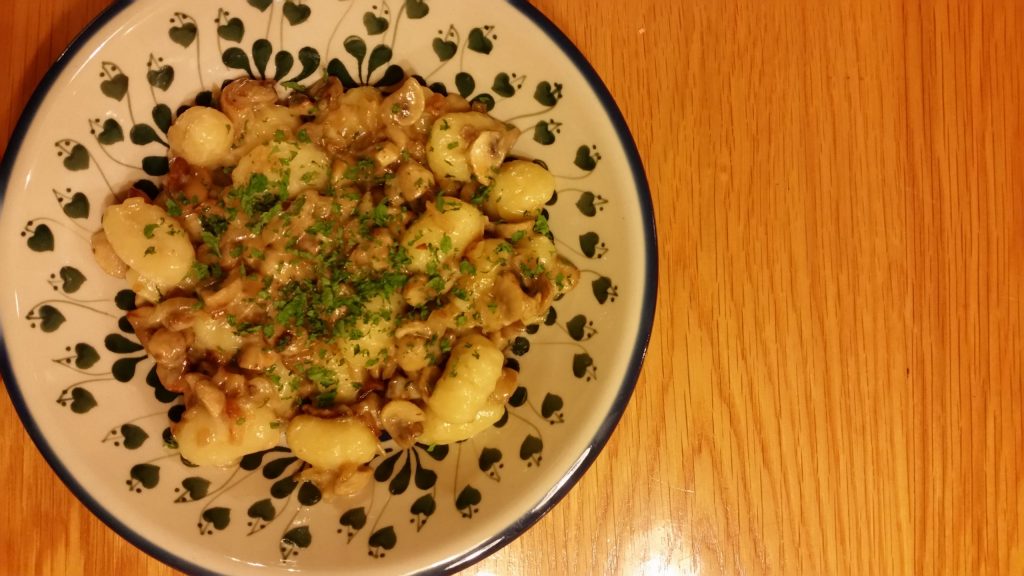I am home alone this week, and experimenting with ingredients. I was very pleased to find tofu in Creagorry Co-op recently, and this was the recipe that I tried tonight. It is very easy to prepare, and can be varied quite a bit. I’ll put all the variations in brackets. I got the basic recipe from Madhur Jaffrey’s Eastern Vegetarian Cooking. I have the first edition, complete with stains and a burnt cover. Very authentic.
INGREDIENTS:
- 2 tsp cornflour (or Japanese arrowroot – kudzu)
- 100 to 200ml vegetable stock (or beef stock)
- 1 tsp chilli paste with soy bean (or sriracha +/- miso paste)
- 2 tbsp soy sauce, preferably Chinese thin soy sauce
- 1 tbsp sesame oil
- 1/2 tsp salt
- 1/2 tsp sugar (or Basra date syrup)
- 2 tbsp vegetable oil
- 3 cloves of garlic, finely chopped
- 1 tsp finely chopped fresh ginger (or 1/2 tsp dried ginger, added to the stock)
- 3 spring onions, finely sliced into rounds, including the greens
- 1 block of bean curd (about 300g) cut into cubes – can be as large as 2cm cubes.
METHOD:
- Prepare the sauce. Put the cornflower into a bowl or jug, and mix in a little stock and stir out any lumps. Then add the rest of the stock, along with the chilli paste, soy sauce, sesame oil, salt and sugar, and mix well.
- Make sure the other ingredients are fully prepared and lined up.
- Heat the vegetable oil in a wok (medium high) and then add the garlic and ginger, stirring and frying for 10 seconds.
- Add the spring onions. Stir and fry for 5 seconds.
- Add the tofu. Stir and fry for 1 minute
- Add the sauce, turn the heat to low, stir gently and simmer until the sauce thickens.
I served with steamed broccoli, toasted sesame seeds and noodles.
